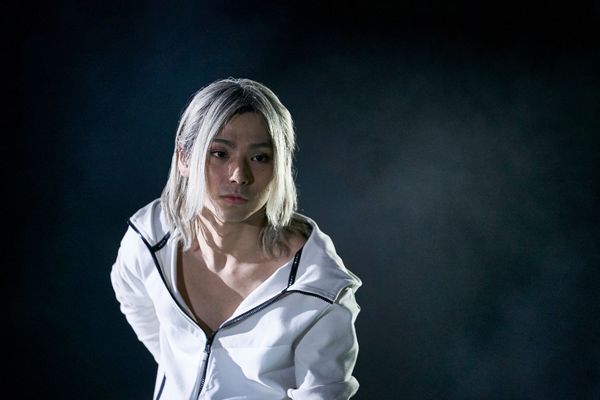Why some see this “Alice in Borderland” breakout as a role model for survival
In Netflix’s “Alice in Borderland” there are very few clear-cut heroes, the main ones being its title character Arisu (Kento Yamazaki), and his partner in death game survival Usagi (Tao Tsuchiya). Although the series is influenced by gamer culture’s obsession with online battle royale matches, it also incorporates (albeit very loosely) elements taken from Lewis Carroll’s classic story.
Some of the character parallels are obvious: Arisu’s name is the Japanese pronunciation of Alice, and his strengths are empathy and strategy in this alternate, mad world filled with mandatory death games. Usagi, a highly agile climber and extremely fast woman who is the daughter of a famous mountaineer, has a name that translated from Japanese means rabbit. The first season features a power-mad leader named Hatter and prominent secondary character Mira, whose name means queen, a signal of her ultimate role.
None are as immediately captivating as Nijirô Murakami’s Chishiya, an androgynous platinum-haired contender who wears the slightest suggestion of a grin and says little. Along with his analytical mind, and his refusal to apologize for his intelligence, Chishiya distiguishes himself by silently observing everyone and everything before he makes any move.
Chishiya is not quite for anyone or anything other than his satisfaction. That makes him equally fabulous and terrifying.
That doesn’t always mean he’ll do right by his allies. Indeed, he first appears in the series as part of a hide-and-seek match where the chasers are equipped with machine guns and permitted to rain bullets down on the innocent. While everyone else screams bloody murder, Chishiya finds an out-of-the-way perch and observes, swooping in once he and an out-of-breath Arisu figure out where the game’s objective is hidden.
Even then, when Arisu is ambushed by an adversary armed to the teeth, Chishiya doesn’t help him, preferring to stand back and wait for the situation to sort itself out.
Arisu, Usagi, Chishiya, and other players who survived the first season, including Chishiya’s main ally Kuina (Asahina Aya) and a former forensics cop named Ann (Ayaka Miyoshi), each dropped into this alternate version of Tokyo where the only rule is to join deadly competitions and survive them.
Games correspond to playing card suits: Spades are physical competitions, and clubs require teamwork. Diamonds are games of logic that favor intelligent players. Hearts use players’ emotions to push them to despair or to betray each another. Losers are executed by lasers beaming down from the sky. Only in this season, they’re face card games, pitting players against seemingly invincible Jacks, Kings and Queens.
If “Alice in Borderland” fans are a little obsessed with Chishiya, it’s only right to credit Murakami’s subtle performance. He’s also a popular actor in Japan, which explains some of the stan energy surrounding his character, but a beloved face only gets a person part of the way. His charisma melts into Chishiya’s overall inscrutability in an arena where every other survivor obsesses over existential meaning and purpose.
Chishiya seemingly isn’t motivated by much of anything. Violence can be exploding in his face – actually, not figuratively – and he’ll still run only as fast as he has to, perhaps without deigning to remove his hands from his pockets.
Neither the series nor the manga it’s based on is subtle. Nevertheless, Murakami’s portrayal insists on an economy of movement and energy expenditure, reflecting an uncommon attitude in life-or-death action operas like this. He makes Chishiya formidable by making him the type of antihero without concern, even when the stakes could mean his death. Every character has their strong suit, quite literally. Chishiya’s advantage lies in Hearts contests, since he enjoys messing with people, as well as Diamonds.
When he faces the King of Diamonds in a contest of chance and averages based on a concept known as The Keynesian Beauty Contest, he gives each a workout. The challenge isn’t merely to wager on a contestant’s mathematical prowess but to figure out their behaviors and propensity for irrational risks. And the King is someone familiar to Chishiya from a previous level, a person he never took the opportunity to understand. Above each of player is suspended a bowl of highly concentrated acid, filling a bit more each time someone gets a wrong answer until it overflows, dissolving each loser once their luck runs out.
And yet, throughout this impossible trial, Chishiya wears the air of someone who seems to have it all figured out despite telling the audience, and his ultimate opponent, that whether he lives or dies is entirely in their hands. By observing his adversary he figures out his Achilles heel is similar to his own, in that they’re both men who once desired to help others, but were defeated in that laudable aim by corrupt superiors beholden to people who rule with wealth.
 Nijirô Murakami as Shuntaro Chishiya in “Alice in Borderland” (Netflix)
Nijirô Murakami as Shuntaro Chishiya in “Alice in Borderland” (Netflix)
His behavior in the Jack of Hearts contest, called Solitary Confinement, places this into action. The game puts a group of competitors in a prison and outfits them with collars that digitally display card suit symbols – that change each hour – on the napes of their necks, where they can’t see. At a designated time they must go into a cell that declare the correct symbol or the collars will explode. The only way to know that your symbol is correct is to have someone else look and tell you. It’s a game of trust assigned to strangers who have no reason to trust one another.
So why wouldn’t we appreciate Chishiya’s honesty, his knack for cold calculation and overall panache?
Thus, the smartest players pair up with the ones they can most easily manipulate. This should be a glide for Chishiya, a guy who admits, “I’ve always loved messing with people who try too hard at life. I hate selflessness.” That attitude makes him equally fabulous and terrifying, very much like the Cheshire cat. And like Carroll’s enigmatic feline, he speaks the truth, even if that translates to providing his allies only enough data to bring his plans to fruition. But weak links break, regardless of whether stronger ones have latched themselves to them.
When Chishiya’s partner loses his nerve, he’s left as the odd man out, relying on his insouciant swagger to exacerbate the other characters’ insecurities. Among the final five players, one apparently malleable player is paired with a serial killer whom Chishiya recognizes from the news, and the other has hooked up with a con man. He really is the best option among competing devils. But game recognizes game, and once again he walks away triumphant, leaving the bodies of the more innocent behind him in that arena..
“All I know is that I sure as hell wouldn’t want to be your enemy,” Kuina tells him at one point.
“Yeah,” he purrs, “I get that a lot.”
As of this writing, “Alice in Borderland” sits squarely among Netflix’s Top 10 most popular TV titles globally (and is No. 1 among non-English language shows), likely owing that level of interest to the worldwide success of “Squid Game.” The two have a few major themes in common, in that both are about desperate people forced to play versions of schoolyard games in which the losers die. Neither shies away from brutality on that front.
But “Squid Game” is an original concept and a Korean drama embroidered with commentary about that society. Most of it flies above the heads of viewers unfamiliar with that nation’s history or the economic and social impact of thoughtless political decisions enacted by the U.S.
Want a daily wrap-up of all the news and commentary Salon has to offer? Subscribe to our morning newsletter, Crash Course.
In contrast, “Alice in Borderland” presents a more straightforward premise in the form of a puzzle box narrative. The second season matches are tougher and a few of the deaths grislier. And every character reaches a point at which they begin to question the whole purpose of living and why, exactly, they want to return to the lives they had before.
There’s a specific reason these people are trapped in Borderland, including Chishiya, whose backstory – as a doctor whose less wealthy patients kept getting passed over for transplants – explains his jaded nonchalance and his affinity for aligning with underdogs, whether to help them or use them. It probably satisfies viewers who prefer straightforward explanations while blasting apart a few theories about the story’s hidden profundity.
 Nijirô Murakami as Shuntaro Chishiya in “Alice in Borderland” (Netflix)
Nijirô Murakami as Shuntaro Chishiya in “Alice in Borderland” (Netflix)
Within this, Chishiya is redeemed by doing right by those he once wronged and admitting, with some shame, what truly drives him. It’s the same as what keeps most of us getting out of bed every day or drives us to stay alive in forbidding conditions, whether they’re the type we became familiar with at the height of the pandemic or the unknowns hiding down the road. But there also comes a time when he realizes that playing the villain card is dull and useless, and decides to risk his life for a decent person he once looked down upon, because “I wanted to do something that was a bit out of character.”
It’s easy to see why Chishiya has such a magnetic appeal at the close of a year when audiences obsessed over stories of con artists infiltrating society’s most exclusive strata. One could easily envision him sizing up Elizabeth Holmes, or introducing Anna Delvey to Japanese society, albeit with ample warnings to her marks about what they’re walking into, before quietly sitting back to observe the show.
So why wouldn’t we appreciate Chishiya’s honesty, his knack for cold calculation and overall panache? He acts out a strategy for coping with odds of success and survival that seem slimmer by the day that we can get behind, showing us that when society is falling apart there’s no reason to panic. A better option is to stand back, keep your eyes open and, no matter what level of chaos erupts, strive to remain superhumanly unbothered.
Read more
about this topic

